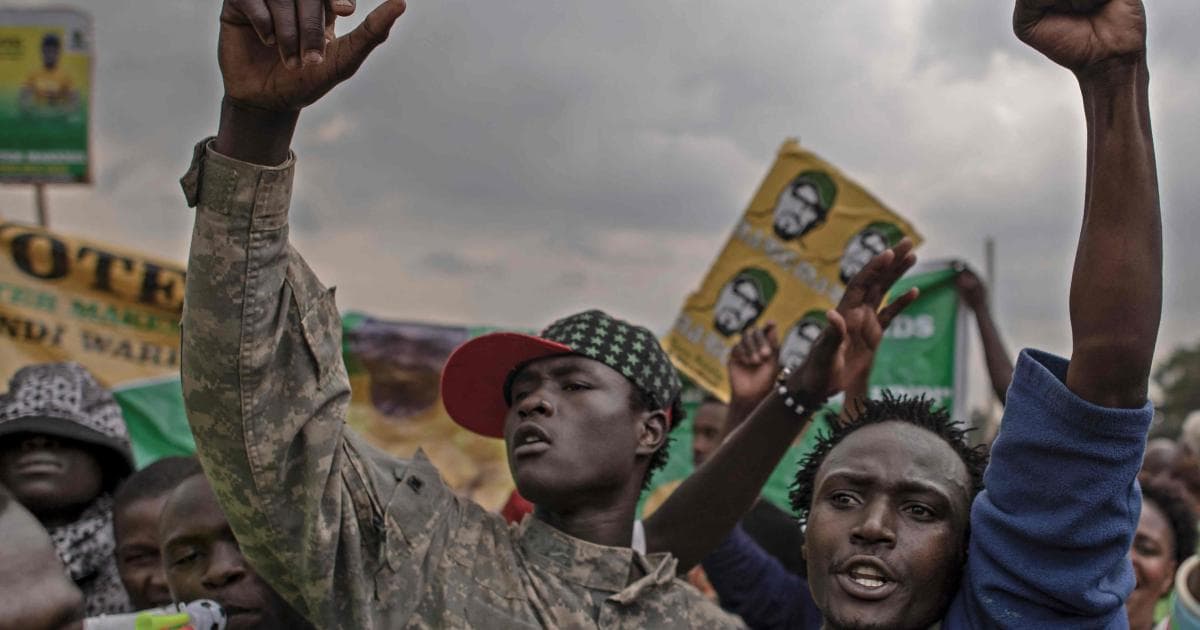We're loading the full news article for you. This includes the article content, images, author information, and related articles.
Unverified opposition claims of mass casualties clash with official silence and verified UN reports of at least 10 deaths, sparking regional security concerns as Kenya warns its citizens against crossing the border amid escalating post-election turmoil.

DAR ES SALAAM/NAIROBI – Tanzania’s main opposition party, Chadema, claimed on Friday, October 31, 2025, that approximately 700 people have been killed in three days of violent protests following the country's contentious general election held on Wednesday, October 29. The allegations come amid a near-total internet blackout and a government-imposed curfew, making independent verification of the death toll extremely difficult. Chadema spokesperson John Kitoka told Agence France-Presse (AFP) that the party had compiled the figures from hospitals and health clinics, alleging around 350 deaths in the commercial capital Dar es Salaam and over 200 in the city of Mwanza. A security source, speaking anonymously to AFP, indicated they had heard reports of “maybe 700-800 in the whole country.”
The Tanzanian government has not released any official casualty figures and has largely remained silent on the opposition's claims. In its first direct address of the unrest on Friday, the foreign affairs ministry described the events as “isolated incidents of breaching law and order” and stated that heightened security measures were temporary and necessary to restore normalcy. The army chief, General Jacob Mkunda, characterized the demonstrators as “criminals” in a statement on state television on Thursday, October 30.
International bodies have offered more conservative, though still grave, estimates. The United Nations human rights office stated on Friday from Nairobi that it had received “credible reports” indicating at least 10 people were killed by security forces in Dar es Salaam, Shinyanga, and Morogoro. Amnesty International reported it had received information suggesting at least 100 fatalities.
The protests erupted on election day, fueled by widespread anger over an electoral process that critics and international observers say was fundamentally flawed. President Samia Suluhu Hassan, who took office in 2021, was declared the winner on Saturday, November 1, with an improbable 97.66% of the vote, according to the Independent National Electoral Commission (INEC). The election was preceded by what human rights organizations described as a systematic crackdown on the opposition. The country's main opposition party, Chadema, was disqualified from participating in April 2025 after it refused to sign an electoral code of conduct, demanding systemic reforms first. Its leader, Tundu Lissu, was arrested in April and is currently on trial for treason. Another significant opposition candidate, Luhaga Mpina of the ACT-Wazalendo party, was also barred from running. This effective removal of any viable opposition led organizations like Amnesty International and Human Rights Watch to warn before the vote that the election risked being a “procedural affair devoid of legitimacy.”
The escalating crisis in Tanzania, a key partner in the East African Community (EAC), has triggered significant concern in Kenya. Unrest has been reported at the Namanga one-stop border post, a critical trade artery between the two nations. In response to reports of young Kenyans attempting to cross into Tanzania to join the demonstrations, the Kenyan government has issued a stern warning. On Friday, Prime Cabinet Secretary and Cabinet Secretary for Foreign and Diaspora Affairs, Musalia Mudavadi, urged Kenyans to respect Tanzania's sovereignty and laws. “Do not assume that everyone is on the same path,” Mr. Mudavadi stated, cautioning against attempts to “export” protests.
The stability of Tanzania is crucial for regional trade, security, and integration. The EAC and the African Union (AU) both deployed election observation missions, but their comprehensive reports on the conduct of the poll and the ensuing violence are still pending. Meanwhile, civil society groups in Kenya, including the Kenya Human Rights Commission, have condemned the violence and the silence of regional bodies, with some activists stating they are documenting atrocities with an aim to approach the International Criminal Court.
The United Nations Secretary-General, António Guterres, has called for a “thorough and impartial investigation into all allegations of excessive use of force” and urged all parties to exercise restraint. With the official election results announced but rejected by the opposition, and with communication lines severely restricted, the path to de-escalation in Tanzania remains uncertain, posing a significant challenge to stability in the East Africa region. FURTHER INVESTIGATION REQUIRED.
Keep the conversation in one place—threads here stay linked to the story and in the forums.
Sign in to start a discussion
Start a conversation about this story and keep it linked here.
Other hot threads
E-sports and Gaming Community in Kenya
Active 9 months ago
The Role of Technology in Modern Agriculture (AgriTech)
Active 9 months ago
Popular Recreational Activities Across Counties
Active 9 months ago
Investing in Youth Sports Development Programs
Active 9 months ago
Key figures and persons of interest featured in this article